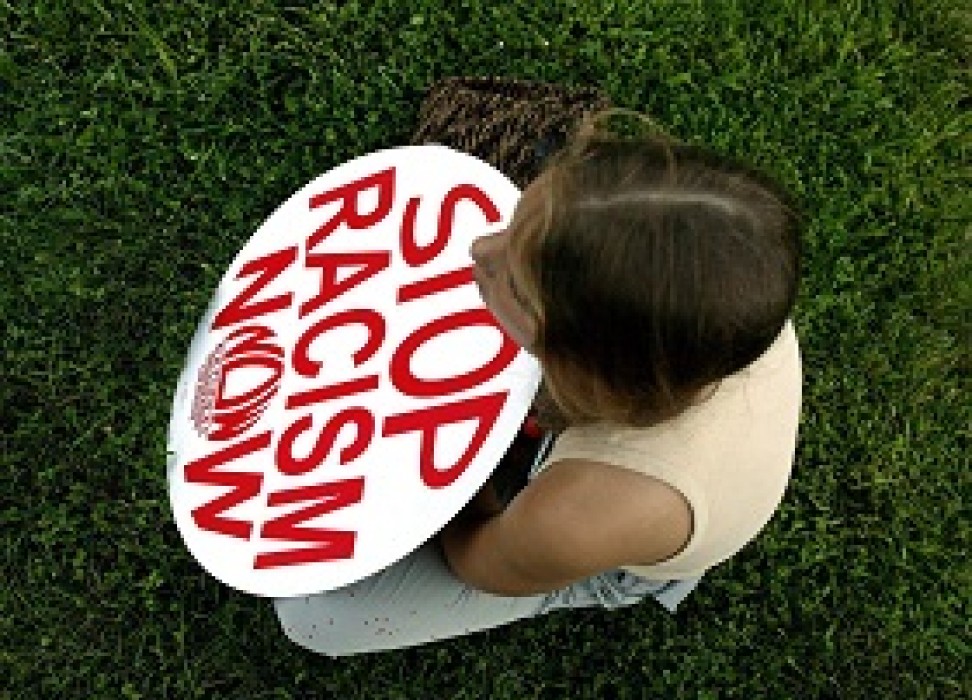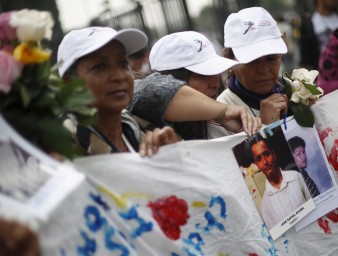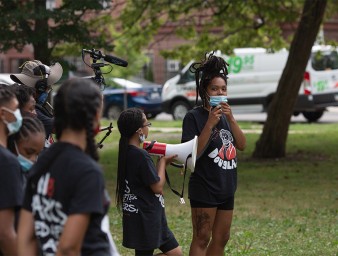NGOs urge US to implement recommendations of UN anti-discrimination body
28 August 2014

A diverse network of 100 US civil society actors travelled to Geneva to attend the review of their country by the UN Committee on the Elimination of Racial Discrimination (CERD) and meet with UN Deputy High Commissioner for Human Rights.
They highlighted the need for more advocacy to develop effective national systems for the coordination and the implementation of recommendations that emerge from UN human rights mechanisms, including CERD, which monitors State compliance with the Convention on the Elimination of all Forms Racial Discrimination that the United States ratified 20 years ago.
The UN Deputy High Commissioner for Human Rights, Flavia Pansieri, stressed the importance for the UN Human Rights Office of working with civil society in all countries. She noted the need for the United States to ratify human rights treaties and to create appropriate national structures to coordinate and facilitate their implementation.
“Structures for the implementation of human rights recommendations at the national level should also include a local human rights authority”, she added. “Firstly, because it is a sign of a healthy society, but also because the burden of implementation is then shared.”
Ron Davis, Chef Executive Officer of the Jordan Davis Foundation, raised the issue of gun violence and the “Stand your Ground” laws that are applied in 23 states. He stressed the need for a federal policy against gun violence and for an end to gun sales.
The Foundation was created in honour of his son, Jordan, an African American, who was fatally shot by a white man in 2012. The 17-year-old student was listening to music with friends in a car parked near a gas station when the man asked them to turn down the volume. When the teenagers refused to comply, he fired several shots at the vehicle, injuring three of its occupants and killing Jordan Davis.
Statistics provided by the US Human Rights Network show that African American and Hispanic men and women are disproportionally affected by the way criminal law and policy are implemented. The NGOs highlighted that two million children belonging to racial and ethnic minorities in the United States have one parent in prison. Participants in the meeting stressed that such racial and ethnic bias was unsustainable, and that the country should adopt a comprehensive action plan to fight discrimination at the federal, state and local levels.
The issue of the current surge in children migrants coming from Central America to the United States to flee violence in their countries was also raised and some participants stressed that the response of the United States Congress could set international legal precedents for the way the world deals with migrants and refugees.
“We need to help the US delegation [participating in the review by the Committee] understand that the actions they take against Central American children have international implications,” said Naureen Shah of the American Civil Worker’s Union. “Whatever policies the US adopts in relation to migrant workers and children will set the tone for other countries’ conduct elsewhere around the world.”
Voting rights organizations expressed concerns about the impediment to peoples’ right to cast their ballots. They referred to a complex identification mechanism that dissuades individuals from participating in elections, and to laws that limit the ability to register voters because of their past criminal records.
Figures of the National Association for the Advancement of Coloured People show that 4.4 million people who had previously been involved in the criminal justice system cannot vote. The African American adult population is four times more disenfranchised than the rest; Hispanic men are also disproportionately affected.
Representatives of organizations of indigenous peoples echoed the views expressed by the other participants in the meeting. They also recommended that the United States create a Truth and Reconciliation Committee for indigenous peoples, and asked for recognition and financial support for tribal schools.
Discriminatory practices and sexual violence against indigenous women were other areas that they wished were given more attention and a better response. They also noted that there was a lack of standardized health services to victims of sexual violence.
“The US is extremely advanced politically and economically, but it has also significant human rights challenges,” she said.
The review of the combined seventh to ninth report of the United States on its implementation of the provisions of the anti-racial discrimination Convention took place on 14 August. A Summary of the discussion between the United States’ delegation and members of CERD is available.
28 August 2014




